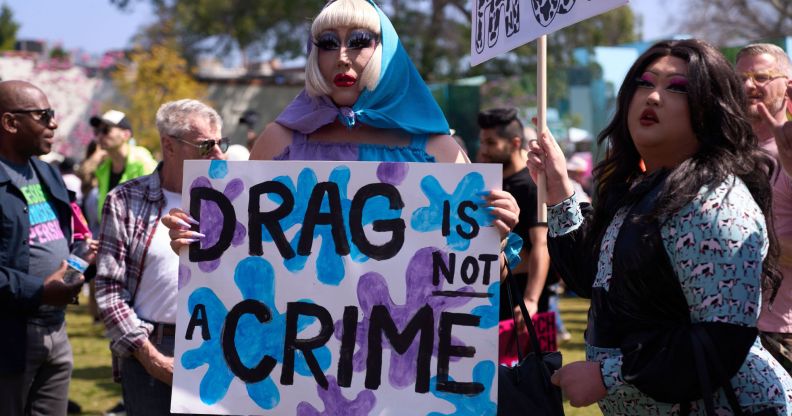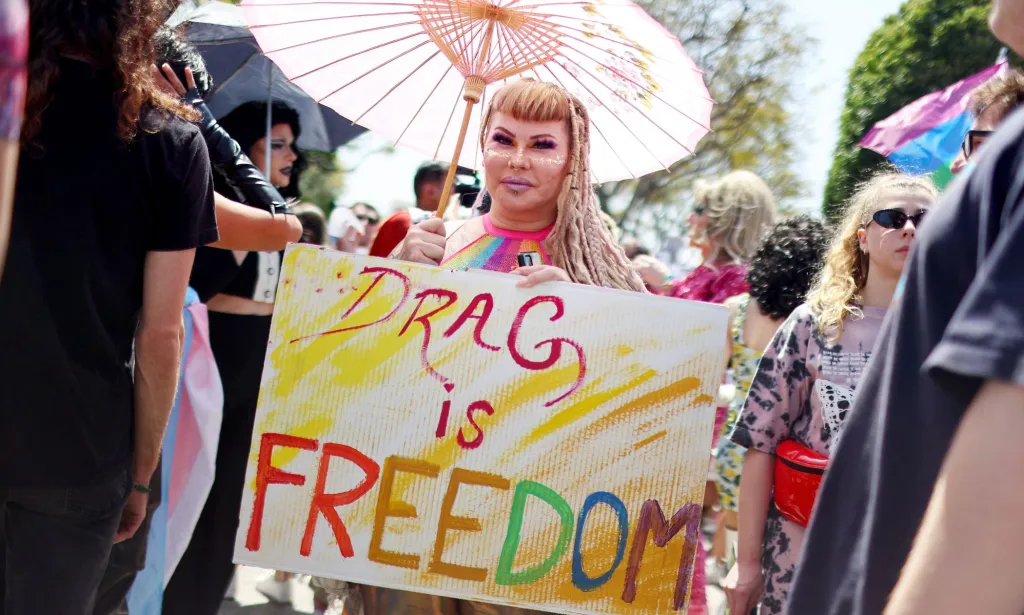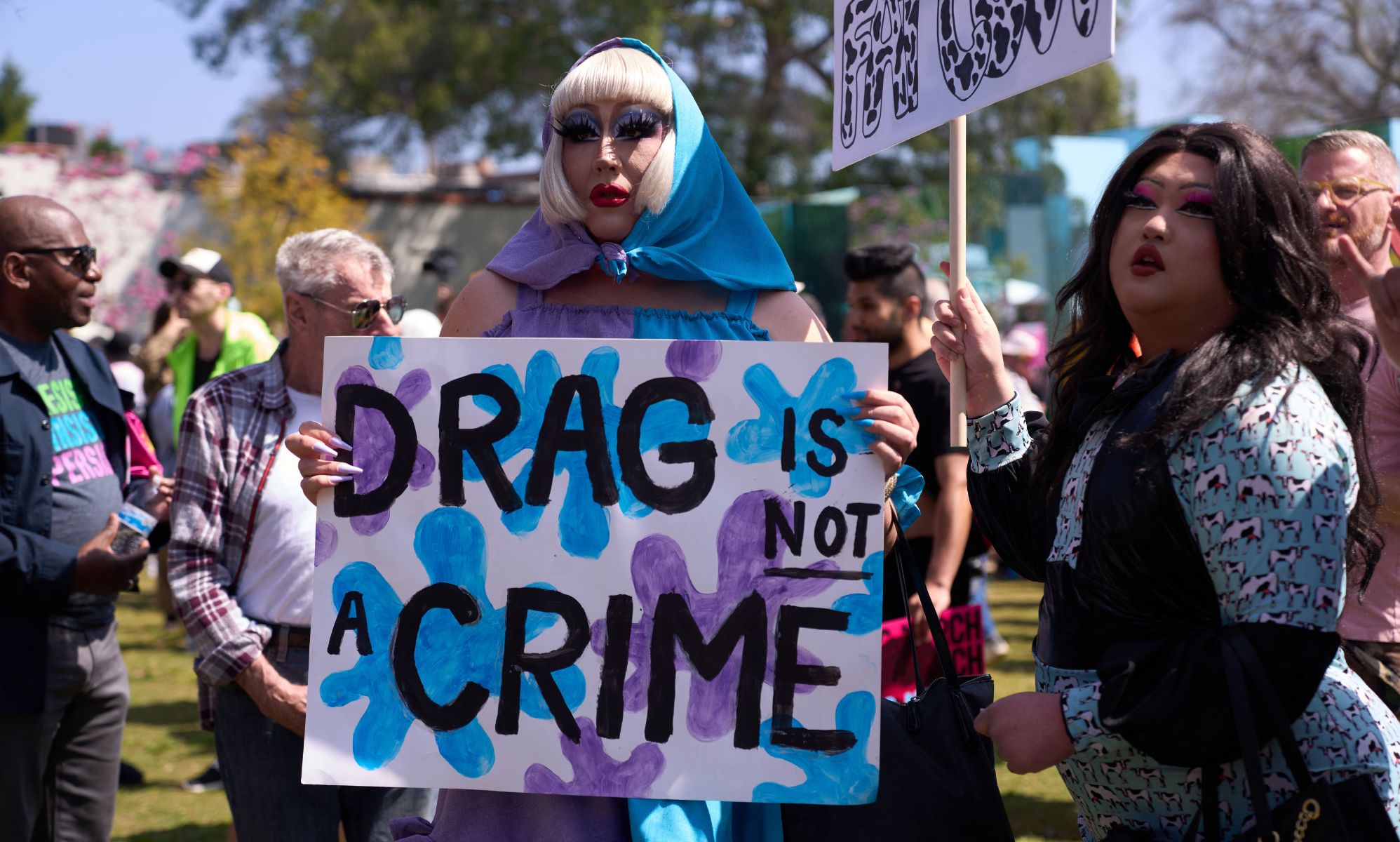
An anti-gay public ordinance mandate was passed in Murfreesboro, Tennessee last June. (Getty)
The city of Murfreesboro in Tennessee has been ordered to pay $500,000 (£396,100) in damages after it attempted to ban Pride festivals and drag shows last year.
The policy, passed in Murfreesboro in June 2023, prohibited “indecent behaviour” in public and outlawed “indecent materials,” stating that the local community had “the right to establish and preserve contemporary community standards” that would see behaviour that local officials deemed inappropriate banned.
The battle began in 2022 when City Manager Craig Tindall wrote a letter to BoroPride organisers that stipulated the city would deny future permits for the event to take place, accusing the festival’s drag show that year of exposing “children to a harmful prurient interest.”
The policy used to define indecency linked back to the town’s city codes which labelled “sexual conduct” indecent, with the accompanying clause including “homosexuality.” It attempted to ban the local Pride festival from taking place, as well as ban books with LGBTQ+ themes from the library.
Under the rules, police officers were given the right to enforce bans on indecent behaviour, and any local citizen using city funds for events deemed to be indecent could be charged with additional crimes.
Later on, the policy was used to remove books from the Rutherford County Library Board that contained LGBTQ+ themes.
Multiple board members claimed that they had a right to “enforce community standards,” and in August 2023, library board officials removed four titles: Flamer by Mike Curato, Let’s Talk About It by Erika Moen and Matthew Nolan, Queerfully & Wonderfully Made: A Guide for LGBTQ+ Christian Teens by Jennifer Knapp, and This Book is Gay by Juno Dawson.

As such, books with LGBTQ+ themes could only be accessed by individuals with an adult-only library card.
Now, The Tennessee Equality Project (TEP), American Civil Liberties Union (ACLU) and the ACLU of Tennessee have successfully sued over the city’s efforts to silence local LGBTQ+ groups in Murfreesboro. A federal judge blocked officials’ attempts to ban the local Pride festival from taking place, and at a local council meeting, seven of its members voted to remove “homosexuality” from the list of sexual conduct prohibited.
“The City put in place a discriminatory policy, prohibiting TEP from obtaining permits to host its annual BoroPride Festival and any other events on City property,” the ACLU and Tennessee Equality Project (TEP) argued as part of their lawsuit, according to reports in LGBTQ+ Nation.
“Then, it enacted a discriminatory ordinance meant to drive TEP and the City’s LGBTQ+ community—and, in particular, its drag performers—out of the City’s public spaces. These actions, which were driven by animus against the LGBTQ+ community, are blatantly unconstitutional.”
“The government has no right to censor LGBTQ+ people and expression,” attorneys for the ACLU, ACLU of Tennessee, Ballard Spahr, and Burr & Forman added. “More important than the monetary recovery, this settlement sends a clear message that the city’s discrimination against the LGBTQ+ community was blatantly unconstitutional and that this type of behaviour will no longer be tolerated here — or anywhere across the country.”
